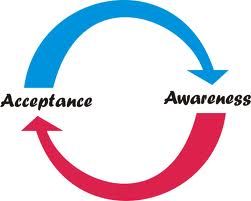Emotional Eating and Weight
Weight loss is hard. Weight management is even harder. We all know this experientially, and the research certainly backs it up.
But its even harder for those who have strong emotional entanglements with regard to their eating behaviors (ie – emotional eaters).
To be clear…I’m not talking about those folks who go a little overboard right after a breakup. I’m not referring to those individuals who make a choice to overeat on Thanksgiving because Nana made Pumpkin Pie Cake from scratch.
No – What I’m talking about are those folks who have what psychologists call “disinhibition” with regard to their regular eating habits. By definition, that means:
Disinhibition: “a lack of restraint manifested in disregard for social conventions, impulsivity, and poor risk assessment. Disinhibition affects motor, instinctual, emotional, cognitive, and perceptual aspects with signs and symptoms similar to the diagnostic criteria for mania.”
In other words – I’m talking about folks who really and truly fall into regular episodes of feeling utterly disconnected from their bodies. They are the ones who say “The hunger scale doesn’t make any sense to me. I can’t discern between all those subtleties.” Or they say “I don’t understand it. One minute I’m aware and conscious. The next, I have finished an entire row of Oreos and I can’t figure out how I even got started.” Or even “I am doing really well and then BAM! Something hits me. A breakup. A death in the family. Suddenly I’m eating and even though I know I’m not hungry anymore. I just cannot stop…”
Given that weight management already requires an exceptionally well-focused and determined mind, a set of specific goals, a means of consistently monitoring those goals, and a willingness to get support for those goals…having this added challenge only makes things more complicated. How can a person monitor their food intake when they can’t even remember just how much they ate last night? And even if she could remember…how would she overcome the shame (which is prevalent in those with emotional eating disorders) long enough to take down note after note of every cookie crumble that landed on her plate?
The Good News
According to some of the latest research, emotional eaters do tend to do fairly well in standard weight loss programs. At least at first. It’s just maintenance that tends to be more challenging.
What Psychologists were curious to find out was this: what if we combined a standard weight loss program alongside a behavioral approach called “Acceptance Based Behavior Therapy” or “Acceptance and Commitment Therapy.”?
The results were promising. Studies have shown that subjects who engage in Acceptance Based Therapy tend to fair better when trying to lose weight and they enjoy the process considerably more.
So what is Acceptance Based Therapy? It’s fairly simple. It essentially boils down to these three things:
First – learn how to identify AND accept the emotions you are having. Because, let’s face it. It’s not the emotions that are the problem. It’s the behaviors we learn to cope with those emotions that lead to weight gain. Cultivating a sense of compassion for our wide spectrum of emotions can help us to reduce our distress.
Second – make a choice about what you really want to do. What is it that you really value? What behavior would be in alignment with that value?
Third – Take action.
The action part is where the standard weight loss programs came in. As it turns out – the tools that these weight loss programs promoted were very effective. The challenge for those with emotional eating was that, during a moment of distress, it was difficult to access that part of the mind devoted to using those skills.
Acceptance Based Therapy helped provide participants with a little breathing room and space to be more conscious of their decisions. Once that space was established (even if it was only the space of a few seconds) – it became easier to take actions like those promoted by weight loss programs.
Conclusion:
Emotions are a part of us. For a long time, the medical community tried to disregard them. Then to override them. But…research shows that doesn’t work. Instead, by accepting our emotions as a natural part of us, we cultivate compassion. And in those moments of self-compassion, we find that tiny little glimmer of space to make a conscious choice about how we will respond to that emotion.
As Brene Brown said in her book Daring Greatly:
The opposite of recognizing that we’re feeling something is denying our emotions. The opposite of being curious is disengaging. When we deny our stories and disengage from tough emotions, they don’t go away; instead, they own us, they define us. Our job is not to deny the story, but to defy the ending—to rise strong, recognize our story, and rumble with the truth until we get to a place where we think, Yes. This is what happened. This is my truth. And I will choose how this story ends.

